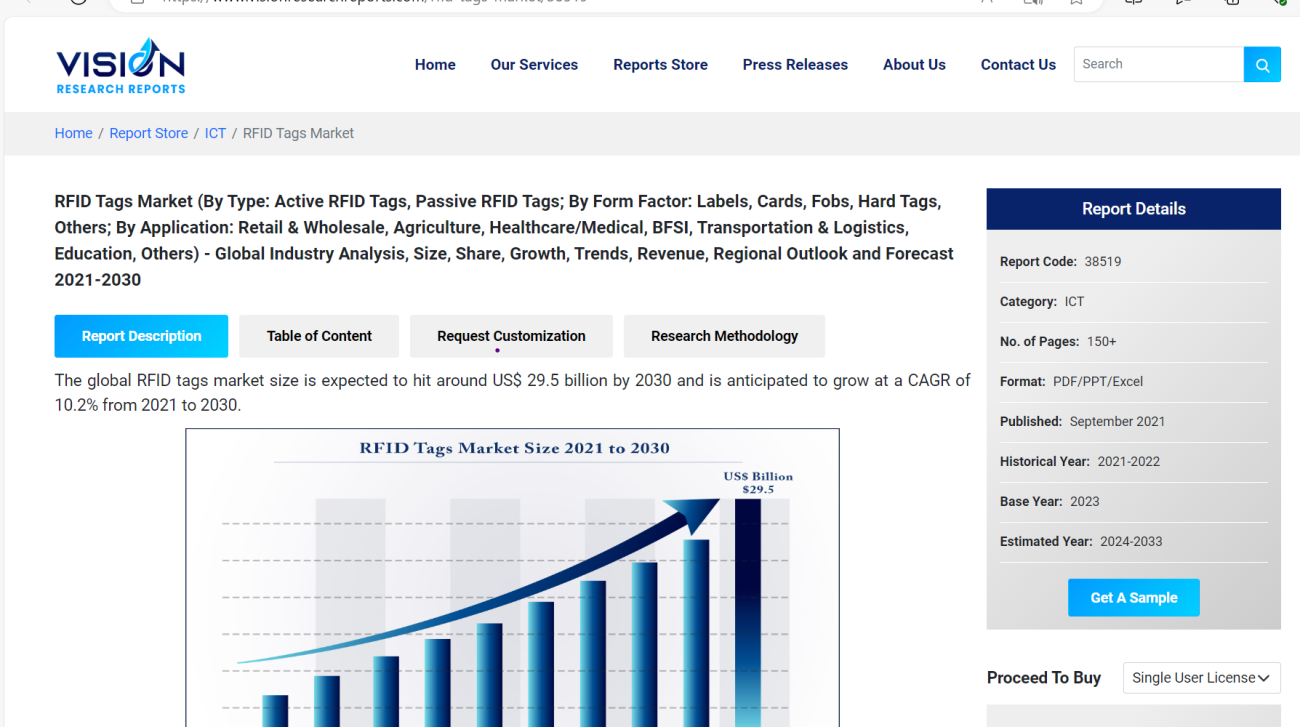
The global RFID tags market is projected to reach a substantial value of around US$6 billion by 2030, with an anticipated growth rate of 8% from 2021 to 2030. This growth is driven by various factors, including the expanding applications of RFID tags across diverse industrial sectors, particularly in e-commerce and retail. RFID technology, used for automated identification, relies on small devices called RFID tags or transponders. These tags, categorized as active or passive depending on their power source, facilitate tracking and identification through integrated circuits and antennas.
In retail, RFID technology is increasingly adopted for enhancing supply chain visibility and efficiency. By tracking inventory from warehouse shelves to sales floors, retailers aim to reduce labor costs, improve sales, and optimize inventory levels. Additionally, RFID tags play a pivotal role in automated toll collection systems, offering convenience to commuters and bolstering transportation efficiency.
The report emphasizes the importance of understanding market segments to identify growth opportunities. It provides detailed regional analyses and insights into market dynamics, including drivers, restraints, and challenges. Furthermore, it presents a comprehensive competitive landscape, profiling key players and analyzing their strategies, financials, and market presence.
The research methodology employed involves both primary and secondary research, with interviews, data analysis, and validation from reliable sources. Overall, the report offers valuable insights for stakeholders to strategize and capitalize on the growing RFID tags market, with a focus on future growth prospects, trends, and opportunities. Major Key players in the RFID tags market include Alien Technology, Atmel Corp, Avery Dennison Corporation, Checkpoint Systems, Confidex Ltd., FUJITSU, GAO RFID, HID Global Corporation, and Honeywell Corporation, among others.
